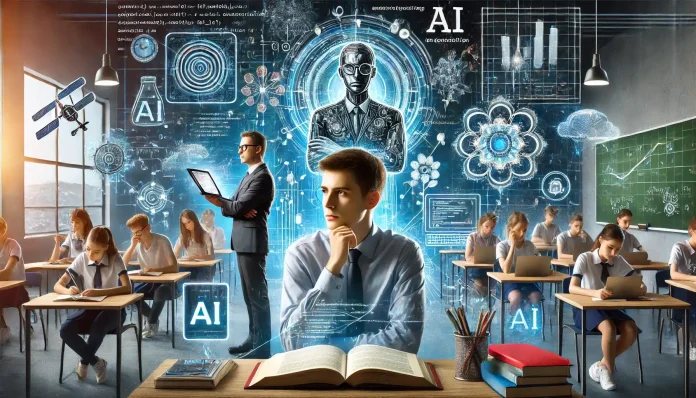AI for Education: Revolutionizing Learning in the Digital Age
Artificial Intelligence (AI) is transforming education by personalizing learning experiences, streamlining administrative tasks, and enhancing educational outcomes. From virtual tutors to intelligent content creation, AI is shaping the future of how students learn and educators teach.
How AI Is Changing Education
1. Personalized Learning
AI-powered tools can analyze student data to create customized learning paths. Platforms like Khan Academy and adaptive learning systems adjust content based on a student’s progress, enabling individualized instruction that caters to their pace and understanding.
For instance, AI systems can identify areas where students struggle and provide targeted exercises or resources. This approach improves engagement and retention, making education more effective and inclusive.
2. Smart Tutoring Systems
Virtual tutors, such as Duolingo for language learning, leverage AI to provide instant feedback, answer questions, and guide students through their studies. These systems are available 24/7, ensuring students can learn whenever they need support.
AI chatbots in education also assist by answering administrative questions, helping students focus more on their academic goals.
3. Streamlining Administrative Tasks
AI automates repetitive administrative processes like grading, scheduling, and data analysis. Tools like Grammarly and plagiarism detection software streamline assignments and assessments, saving educators valuable time.
By reducing the burden of administrative tasks, teachers can dedicate more time to instruction and student interaction, improving overall classroom experiences.
4. Enhanced Accessibility
AI bridges the gap for students with disabilities by offering tools such as text-to-speech software, real-time captioning, and language translation. These innovations ensure that all learners, regardless of their challenges, can access quality education.
For example, Microsoft Immersive Reader supports students with dyslexia or visual impairments, enabling them to engage with educational content more effectively.
Benefits of AI in Education
- Increased Engagement: AI-powered gamification and interactive tools keep students motivated.
- Better Insights: Analytics platforms provide educators with actionable insights about student performance.
- Global Learning Opportunities: AI connects learners worldwide through online platforms and virtual classrooms.
Challenges of AI in Education
While AI brings numerous benefits, it also presents challenges, such as:
- Data Privacy Concerns: Schools must safeguard student information.
- Digital Divide: Ensuring equitable access to AI tools is essential.
- Teacher Training: Educators need adequate training to integrate AI effectively into their classrooms.
The Future of AI in Education
AI’s role in education is expected to grow, with innovations like immersive virtual reality (VR) learning environments and AI-driven curriculum development. As these technologies evolve, collaboration between educators, policymakers, and tech developers will be critical to maximize AI’s potential.
To learn more about integrating AI into education, check out this comprehensive guide on Edutopia.
Conclusion
AI is revolutionizing education by offering personalized learning, improving accessibility, and automating tasks. While challenges exist, the potential benefits far outweigh the drawbacks. By embracing AI, educators can create a more inclusive, efficient, and impactful learning environment.

